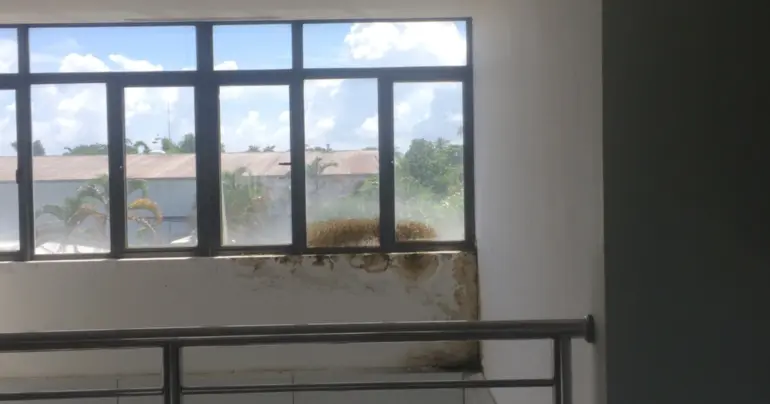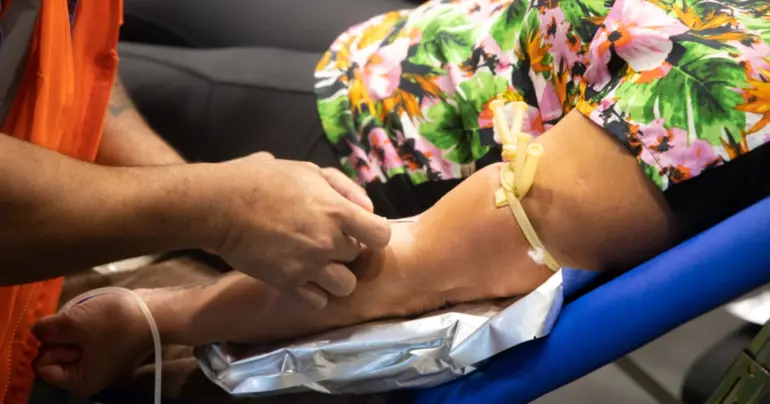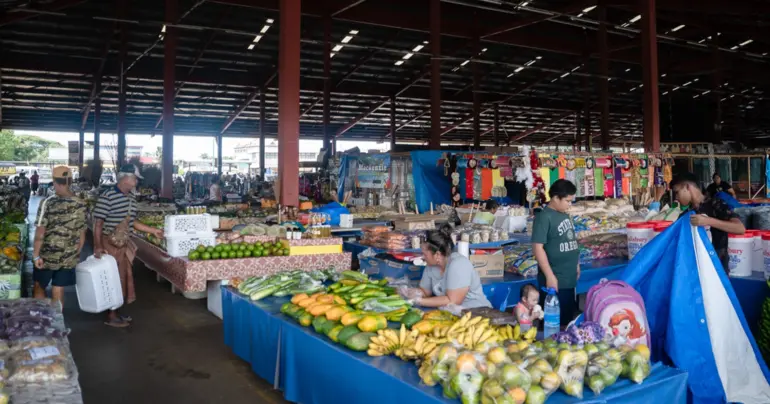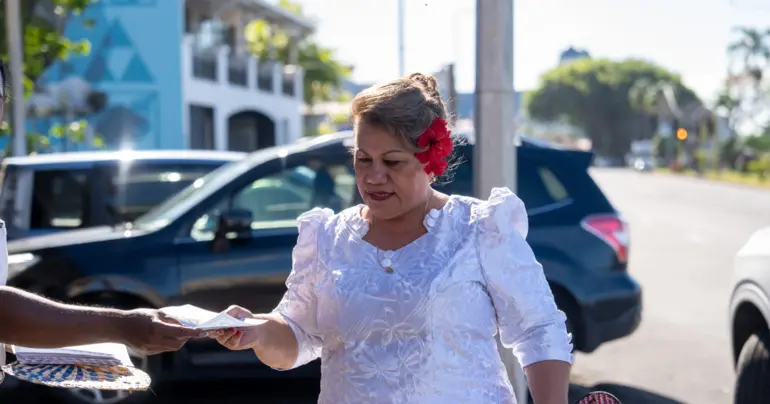Nurse doubts impact of anti-vaccine messages
 By Joyetter Feagaimaali'i
•
09 December 2019, 12:00PM
By Joyetter Feagaimaali'i
•
09 December 2019, 12:00PM
A member of the visiting New Zealand medical team, called in to Samoa to assist with containing the measles epidemic, has disputed the prevailing theory that anti-vaccination messages substantially contributed to the outbreak of the disease.
A registered Nurse, one of 32 on from the New Zealand Government's emergency medical assistance team that helped carry out the mass vaccination programme led by the Ministry of Health, has shared her views on the causes of the epidemic with the Samoa Observer.
Citing confidentiality obligations due to her position, the nurse has requested to speak on the condition of anonymity.
“Anti-vaccination messages did not really have an impact on the people of Samoa, given the images of grieving families on social media,” said the New Zealand-based nurse.
“It may have in the beginning however the images of the grieving families shared on social media had a greater impact on decision making to vaccinate.
“Most families wanted to preserve families and were accepting of the preventative measure of vaccination,” said the nurse in an interview with the Samoa Observer.
In the meantime, Samoa's most famous locally-based anti-vaccination activist is facing up to two years' jail after being charged with "incitement against the Government vaccination order[s]."
Edwin Tamasese, a traditional healer and manager of a coconut farmers' collective, was arrested and held in custody for questioning in Savaii on Thursday afternoon the Attorney General's Office said in a statement late on Thursday.
But the nurse, who was out in the field with the vaccination teams, said the biggest challenges faced by the vaccine teams were those other than people refusing to be vaccinated.
“The biggest challenge is the [lack of] vaccinators and the people are not aware of their exposure history to measles," the nurse said.
“Measles has an incubation period of 10-14 days and symptoms don’t show until then. Giving the vaccine can save lives, as it starts the process through triggering the immune system to fight measles and the public knew this when we visited their residences.”
The nurse said the highlight of working on the campaign, which included a two-day shutdown of Government and business right across Samoa to facilitate the path of vaccination teams to villages, was seeing local elders lending a hand.
“There were grandmothers, aunties, fathers and grandfathers taking the responsibility into their hands and bringing the children to be vaccinated. Giving the vaccine can save lives, as it starts the process through triggering the immune system to fight measles.”
The nurse commended the response of the local nurses and health officials.
“We respect the context hence challenges are expected. The way the Samoan nurses have responded to the epidemic is commendable. The teams start at 5am and some teams, stayed out until 10pm to ensure no one is left behind.”
The nurse also said seeing sick children forced to be evacuated or 'medevaced' to the national hospital from rural areas was also highly affecting.
“We have had two emergency cases, which is a combination of needle phobia and feeling slightly unwell prior to the vaccination. The latter was not clearly communicated to the vaccinator. The team responded appropriately and provided first response as per protocol before transporting to T.T.M. hospital," she said.
According to the nurse, on Friday alone their team vaccinated 85 people and they were proud of the efforts to vaccinate as many as they could across the span of eight hours.
On the day the Samoa Government announced the state of emergency, New Zealand's Deputy Prime Minister and Foreign Affairs Minister Vaovasamanaia Winston Peters confirmed the Government has answered the call to help Samoa by providing medical aid in the form of nurses, vaccines, and face masks.
New Zealand responded to a request for assistance from the Samoan Government as the number of suspected measles cases grows to reach 718 people in a media statement.
“New Zealand is providing 3000 measles, mumps and rubella (M.M.R.) vaccines and 12 nurses to assist in containing a serious and growing measles outbreak,” said Vaovasamanaia.
“Measles is highly contagious, and the outbreak has taken lives in Samoa. It is everybody’s interests that we work together to stop its spread," the Foreign Minister said. A week later he announced further support to Samoa in the wake of an ongoing measles outbreak in the country.
Additional medical supplies and personnel, including a third rotation of New Zealand’s emergency medical assistance team further nurse vaccinators, intensive care specialists and Samoan-speaking medical professionals were also deployed.
Some 100,000 Measles and Rubella vaccines and a machine to support oxygen production to help meet the unprecedented demand for oxygen in Samoan hospital were provided.
 By Joyetter Feagaimaali'i
•
09 December 2019, 12:00PM
By Joyetter Feagaimaali'i
•
09 December 2019, 12:00PM











